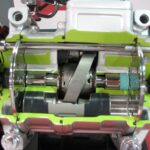Are French Cars Reliable? 16 Things You Need to Know
France is one of the top 10 largest auto manufacturing countries in the world. More than 1.68 million French cars were sold worldwide in 2019.
French car owners seem to stay loyal, buying one French car after the other. Are French cars reliable? Do they deprecate fast? Let’s answer some of the most common questions asked about French cars.

Are French Cars Reliable?
French cars are extremely reliable- more reliable than German or American cars of a similar segment, as they last longer and require less maintenance. A French car, Peugeot 3008, was ranked as the most reliable car in the world. The car received an overall satisfaction rating of 93.8%.
This survey was conducted by driver power in 2018.
Some people might argue that French cars are even more reliable than Japanese and Korean cars. The answer to that question would be no. French cars belong to a different segment. They are more reliable than German or American cars but are less likely to get ahead of Japanese and Korean cars in terms of reliability.
Also read: Why aren’t French Cars Sold in the US? Will They be?
What French Cars are There?
Peugeot, Renault, Citroen, Bugatti, and Alpine are the most common French car brands available in the market. Peugeot, Renault, and Citron have been in business for over a hundred years. On the other hand, Bugatti and Alpine are fairly newer.
Some of the best cars made by these manufacturers are
Peugeot: 106 Rallye, 406 Coupe
Renault: Clio V6, Clio 182 Trophy, Avantime
Citroen: 2CV, DS
Bugatti: Veyron, EB110SS, Chiron
Alpine: A110
How Many Miles Can You Expect from French Cars?
You can expect at least 250,000 miles from your French car. French cars can outrun their German and American counterparts in terms of lasting long. French cars usually last longer due to their high build quality and superior engines.
Do French Cars Break Down Often?
The newer models of French cars with high-end features break down more often. On the other hand, older models of French cars are usually more reliable and require less maintenance. The most common problems encountered with French cars were related to electrical wiring or suspension.
Most common problems
Electrical issues: French cars are prone to issues in the electrical system. If you see any warning lights on the dashboard, it is a clear sign that the electrical system of your car needs repair. Depending upon the severity of the problem, it may cost you between $100 to $1,500.
Suspension issues: You must look out for any strange noise coming out of your French car. Their suspension has been reported to break down and jam very often. This issue can be expensive to repair as well. It may cost you up to $3,000.
Also read: Japanese vs European Cars Comparison (Reliability, Price, etc.)
Are French Cars Expensive to Fix?
Mass-targeted French cars aren’t very expensive to fix; however fixing business segment French cars can be slightly costly. In most parts of the world, it is usually harder to find a French car specialist.
French automakers mostly target domestic audiences. Due to which they have a lesser number of service centers abroad. Finding a French car mechanic can be both difficult and expensive. This fact has negatively impacted the sales of French cars. Many hesitate to buy a car that is expensive to maintain, in their opinion.
Read it: 20 Best Cars in Europe (Almost Failure-Free)
Is it Hard to Find Replacement Parts for French Cars?
You can find replacement parts for French cars quite easily. We live in the time of eBay and Amazon. You can find everything online these days. Replacement parts for French cars aren’t expensive either- for example, Peugeot 2008 SUV has been awarded as the car with the cheapest spare parts.
It was widely believed that spare parts of French cars are very expensive. But a Kinsey report in 2017 busted this myth. French automakers performed well in all three categories of spare parts.
Category A: Includes replaceable items, such as air filters, spark plugs, brake pads, or shoes and wiper blades.
Category B: Includes major items, such as cam belts, shock absorbers, clutch, and pressure plates, flywheels, and fan belts.
Category C: Covers major replacement body costs, such as bonnets, grilles, doors, fenders and bumper skins, and light assemblies
Trending Video: How to Easily Bring Back to Life any Old Car Battery and Save Tons of Money (click to watch)
Is the Quality of Elements in French Cars Good?
The quality of elements in French cars was found to be compromised on several occasions. Body parts of French cars are known to have higher quality as compared to engines and other components.
The build quality of French cars has been variable, and that has given them a bad name. The quality of bonnets, grilles, doors, fenders, bumpers and light assemblies is good. But when it comes to engines and regular spare parts such as clutches, brakes, and plates French cars don’t have the best reputation.
Is the Performance of French Cars Good?
The performance of French cars is really good, and it is their unique selling point as well. Bugatti EB 110SS, Peugeot 907, Renault Clio V6, and Renault turbo 5 are some of the most powerful cars produced by France.
Bugatti EB110 SS: It has a 3.5-liter quad-turbocharged V12 engine, which is capable of producing 603bhp. EB110 SS claimed 0-60mph time of 3.2 seconds and a top speed of 216mph.
Peugeot 907: 907 has a massive 6.0-liter V12 engine with 12 separate throttle bodies. It is capable of producing 500bhp. It can reach 0-60mph in around four seconds and has a top speed of 180mph.
Renault Clio V6: V6 has a 3-liter engine capable of producing 252 bhp. It can reach 0-60 mph in 6.2 seconds.
Renault 5 Turbo: It has an inline-four cylinder engine behind the front seats. The intake of the engine is turbocharged to produce 158bhp and 163 lb-ft of torque.
Also read: 8 Best 2021 Cars with a Red Interior (+Pictures)
Are French Cars Safe?
French cars are extremely safe to drive. Most of the French brands have been awarded a 5-Star safety rating by Euro NCAP.
French employ high-end safety technologies in their cars. All the impressive features come about to ensure the on-road safety of drivers and passengers. Since most of the cars produced by French makers are of business segment, so safety becomes an even sensitive concern for auto companies. Hence, the higher standards for safety.
Read it: 10 Car Brands with the Cheapest Parts (Exact Costs)
Do French Cars Rust Easily?
French cars are generally galvanized, so they don’t rust very often. The exterior of French cars is manufactured with greater quality. The beautiful color scheme adds a touch of finesse and elegance to the majestic exterior of French cars.
In general, if you consider the exterior body parts like fenders, side panels, bonnets, and trunks. They are hot-dip galvanized and painted afterward. This makes these parts highly resistant to rusting.
Do French Cars Depreciate Fast?
French cars usually depreciate really slow. They hold more than 50% of their value during the first three years of operation. French cars have excellent resale value despite being luxury business segment cars.
As the data indicates that Citroen, Bugatti, Renault, and Peugeot lose only 45%, 47%, 45%, and 40% of their values, respectively within the first three years.
Are French Cars Expensive to Maintain?
It might differ based on the French car you’re driving. A Peugeot, Citroen, or Renault can cost around $600-750 in maintenance annually. But maintaining a Bugatti can cost you $100,000 per annum.
Hence, drawing average maintenance costs for French cars wouldn’t be fair because budget segment cars aren’t that expensive to maintain. But a top-segment car with high-end features and technology can take a toll on your pocket.
Are French Cars Expensive to Insure?
The insurance rates for French cars are on the rise. As previously pointed, most of the French cars belong to the business or elite segment, so they can be quite expensive to insure either way. Another reason is the tough French laws relating to insurance.
The spare parts of high-end French cars are extremely expensive. That is why insurance premiums for French cars are on the higher side. The insurance agents very well know that if you can buy a $100,000 car, then paying thousands of dollars or more in premium is noting for you.
It has to do with French government policies towards automobiles also. The levies and taxes on cars have made it impossible for manufacturers to reduce their rates. This has adversely affected the rates of insurance for French cars as well.
Are French Cars Overpriced?
French cars aren’t cheap. They’re somewhat expensive as compared to American or Japanese cars of a similar segment, but they’re so reliable that they aren’t overpriced.
On the one hand, we have the most expensive French car, the Bugatti La Voiture Noire, which is also the most expensive car in the world. Only a single copy of this exclusive model was produced. This car is entirely handmade. Its body is made using sleek and glossy black carbon fiber sheets. It has an eight-liter W16 engine that can develop 1500 horsepower and 1600 Nm torque. This car costs a whopping $18.7 million.
On the other hand, we have Citroen C1 with prices starting at $10,888. But you would not find many French cars in this price range. Hence, you can safely conclude that French cars are overpriced.
What are the Most and Least Reliable French Cars?
Peugeot 3008, Citroen C4, and Renault ZOE have been listed as some of the most reliable French cars ever made. On the other hand, Renault alliance, Peugeot 1007, and Citroen LN are rated all-time worst in terms of reliability.
Most Reliable French Cars
Peugeot 3008: In a power driver survey, it wasn’t only ranked as the most reliable French car but also the most reliable car in the world. It received an overall satisfaction ratio of above 90%.
Citroen C4: Number 2 on our list and 28th most reliable car in the world according to the 2020 power driver survey is Citroen C4. Its production was started as a hatchback, but later it transformed into an SUV.
Renault ZOE: Renault ZOE is number 3 on our list. It was the 37th most reliable car in the world, according to the 2020 power driver survey. The makers are so sure of its reliability that they offered a 3-year free service to all ZOE owners.
Least Reliable French Cars
Renault Alliance: It is a front-wheel-driven and front-engine sedan. The car was rated as worst when it came to fuel consumption and acceleration.
Peugeot 1007: Though the car earned a 5-star safety rating, yet it was unable to impress customers with its reliability. The hatchback was reported to have multiple breakdowns.
Citroen LN: Although the car performed well, still people despised its cheap build quality. The car didn’t score well in crash testing either.
What are the Best Alternatives to French Cars?
Most French cars belong to the luxury segment. Hence their best alternative would be equally expensive cars like Mercedes Benz A-class and Volvo S90. These cars belong to the same segment and can substitute your French car very well.
Mercedes Benz A-Class: Mercedes Benz A-class is a luxury segment sedan. It is a 5-seater vehicle that comes with a 2.0L I4 Turbo engine and All Wheel Drive. Being a German car, it has tons of features like Pedestrian detection, forward collision warning, keyless ignition, remote engine start, panoramic moonroof, android auto, blind-spot system, and integrated turn signal mirrors. This beauty is priced at just $36,700.
Volvo S90: S90 is another luxury segment car. It comes from Volvo, a Scandinavian manufacturer. Its supercharged and turbocharged engines can produce 316 horsepower. The car is made using advanced technology, so you won’t miss your comfy French car. This posh sedan is priced just below $52,595.




![6 Reasons Why Your Car Fan is Loud [Solved]](https://yourgreatcar.com/wp-content/uploads/2021/08/sda-min-1-150x150.jpg)

